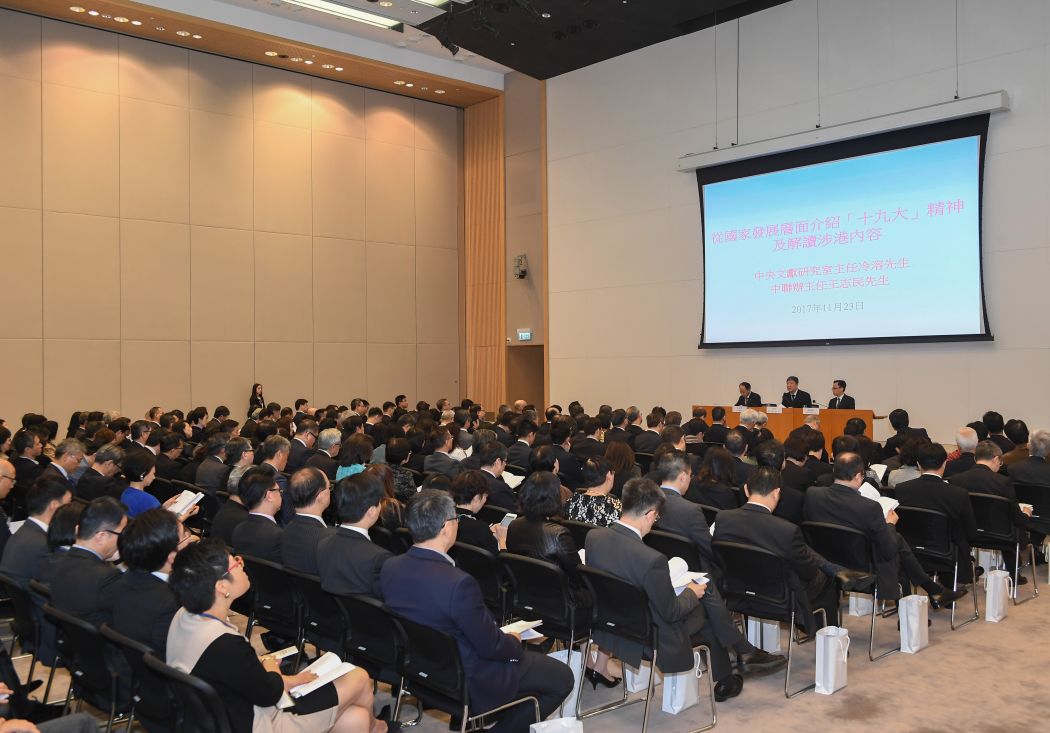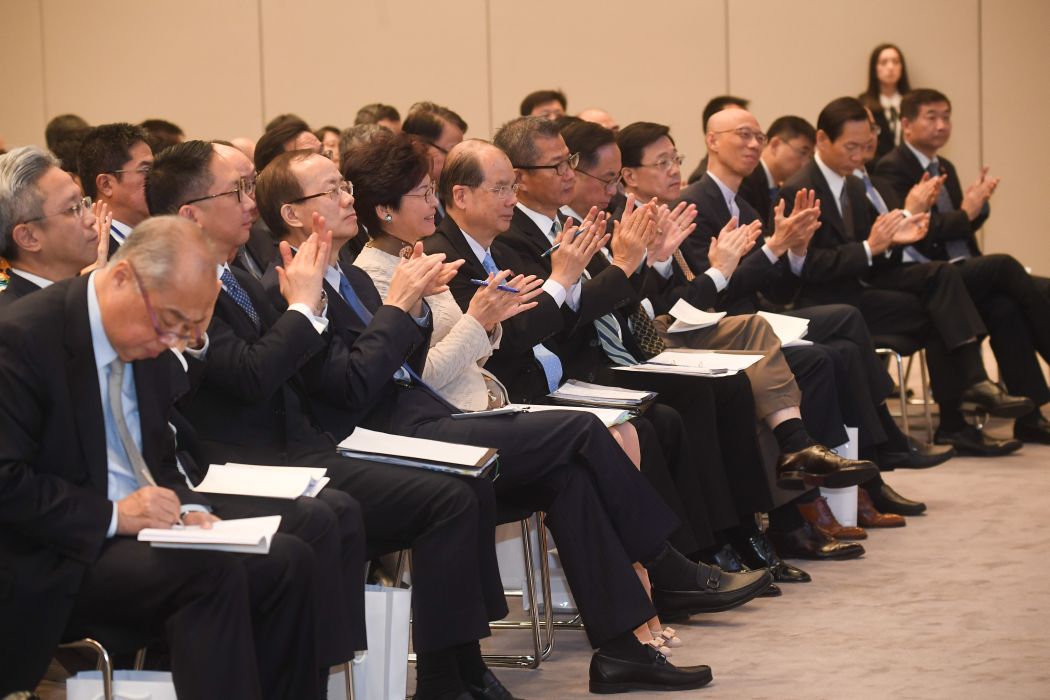Leng Rong, the head of the Chinese Communist Party’s literature research centre, has given a speech to Hong Kong’s top political figures about the “spirit” of the party’s 19th national congress.
It is the first time that the central government has sent a delegation to introduce the congress to local senior government officials. The closed-door seminar, held at government headquarters, was attended by around 240 people, including Chief Executive Carrie Lam, principal officials, and Executive Council members.

In a press release, a government spokesperson said the party congress had significant meaning to the country and Hong Kong’s development, including the section about Hong Kong joining the country’s development strategy.
“The seminar surrounding the 19th party congress will help government officials to understand its spirit and the contents of Xi Jinping’s reports, which will be beneficial to the government’s work.”
The seminar lasted more than two hours and officials were given a copy of Xi’s speech to congress, copies of the Chinese constitution and Basic Law and DVDs from China’s state television.

Executive Councillor Wong Kwok-kin, also a lawmaker for the Federation of Trade Unions, said the talk helped him to understand the content of the party congress.
Wong said Leng did not focus on the part about Hong Kong and did not mention the looming national security law: “Perhaps he does not know Hong Kong well, since he has always been in the central government dealing with theory.”
Wang Zhimin, the director of Beijing’s Liaison Office in Hong Kong, was also invited to speak to officials about the content related to Hong Kong at the party congress.

Six relationships
Regina Ip, also an Executive Councillor and New People’s Party lawmaker, quoted Wang as saying that Hong Kong had to deal with six kind of relationships.
They include the relationship between Beijing’s “overall jurisdiction” and Hong Kong’s “high degree of autonomy”; between the central and the Hong Kong government; between “one country” and “two systems”; between the Chinese constitution and Hong Kong’s Basic Law; between the country and Hong Kong’s development; and between the differences among the mindsets of Hong Kong and mainland people.
“Director Wang said he was saddened during Occupy Central as he saw many young people left home and stayed in tents,” Ip said, referring to the 2014 pro-democracy protests. “He believed misunderstandings of the country among young people was because of education, because they did not have full understanding of the country’s history, traditions and development.”

She said Wang believed the Hong Kong government and the Liaison Office have the same goal in making the city better: “Although there are differences in culture and mindset, he wished everyone could work together in the future to make Hong Kong better.”
She also quoted Wang as saying that Xi attached importance to national security as he mentioned it 18 times in the party congress report.
In terms of increasing Hong Kong people’s national identity, she quoted Wang as saying: “He believed there is no brainwashing, as Hong Kong people are very smart, and the internet is developed very well [in Hong Kong].”
